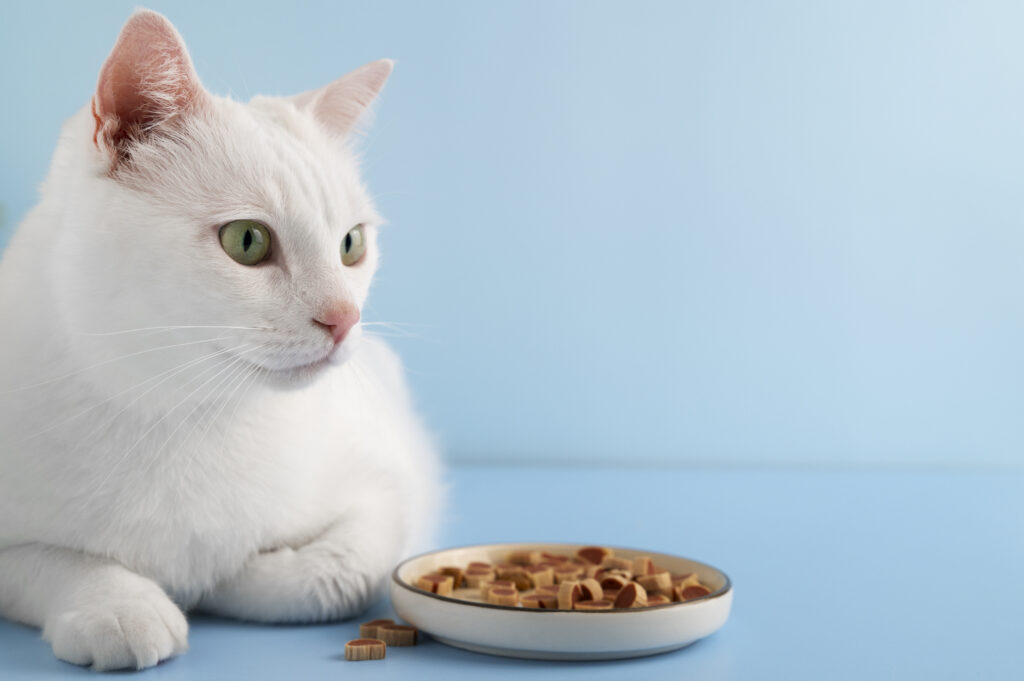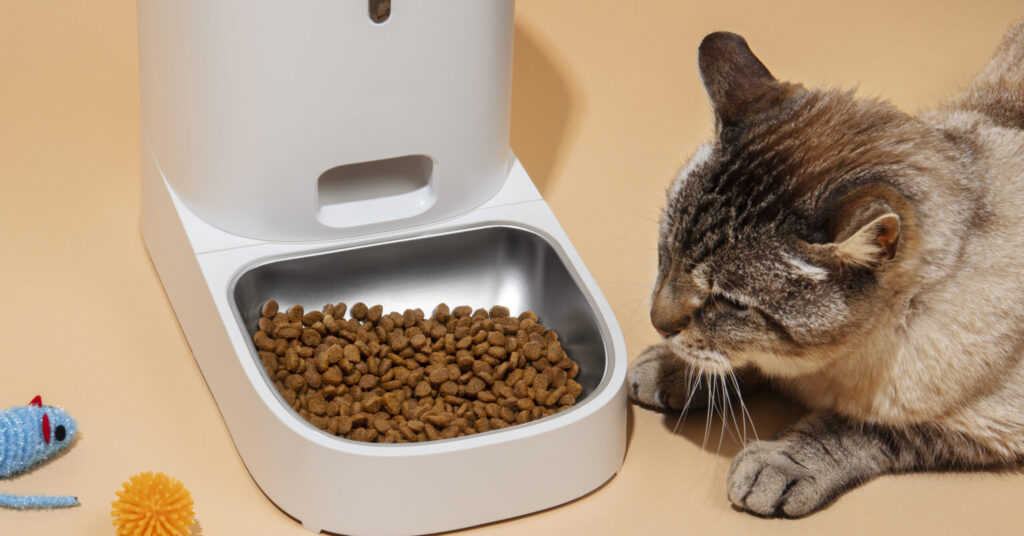As a loving cat owner in Malaysia, you strive to provide the best care for your furry companion. You choose nutritious food, offer plenty of playtime, and ensure they have a comfortable home. But are you fully aware of the micronutrients that silently work behind the scenes, supporting their vitality and well-being? We’re talking about vitamins for cats, essential organic compounds that, while needed in small amounts, play a monumental role in their overall health. This comprehensive guide will explore the crucial world of feline vitamins, shedding light on why they are indispensable and how to ensure your beloved cat receives the right balance for a long, healthy, and happy life right here in our Malaysian homes.
Do Cats Need Vitamins?
The straightforward answer is a resounding yes, cats absolutely need vitamins. These organic compounds are vital for numerous bodily functions, acting as catalysts for enzymatic reactions, supporting immune health, aiding in growth and development, and maintaining the proper function of various organs. While a high-quality, commercially prepared cat food is formulated to provide a complete and balanced array of nutrients, including essential vitamins for cats, understanding their importance empowers you to make informed choices about your feline’s diet. Just like humans, cats cannot synthesize all the vitamins they need in sufficient quantities, making dietary intake crucial.
Symptoms of Vitamin Deficiency in Cats
While reputable cat food brands strive to meet the nutritional needs of felines, deficiencies can sometimes occur due to various factors, including poor quality food, underlying health conditions affecting absorption, or improperly balanced homemade diets. Recognizing the symptoms of vitamin deficiency in cats is vital for early intervention. These symptoms can vary depending on the specific vitamin lacking but may include:
- Lethargy and Weakness: A general lack of energy and reduced activity levels.
- Poor Coat Condition: A dull, dry, or brittle coat, and excessive shedding.
- Skin Problems: Dry, flaky skin, lesions, or increased susceptibility to infections.
- Vision Problems: Night blindness or other signs of impaired vision.
- Neurological Issues: Incoordination, seizures, or nerve dysfunction.
- Digestive Issues: Vomiting, diarrhea, or loss of appetite.
- Weakened Immune System: Increased susceptibility to infections and illnesses.
- Bone and Muscle Weakness: Difficulty moving or reluctance to jump.
If you observe any of these symptoms of vitamin deficiency in your cat, it’s crucial to consult with your veterinarian in Malaysia for a proper diagnosis and guidance on dietary adjustments or supplementation.
The Benefits of Vitamins for Cats
Each vitamin plays a unique and vital role in maintaining optimal feline health. Understanding these benefits of vitamins for cats highlights their importance:
- Overall Health and Well-being: Vitamins contribute to the proper functioning of all bodily systems, ensuring your cat thrives.
- Strong Immune System: Vitamins like A, C, and E are crucial for supporting a robust immune response, helping your cat fight off infections.
- Healthy Skin and Coat: B vitamins, Vitamin A, and Vitamin E contribute to a shiny, healthy coat and supple skin.
- Proper Growth and Development: Adequate vitamin intake is essential for the healthy growth of kittens and the maintenance of bodily functions in adult cats.
- Good Vision: Vitamin A is critical for maintaining healthy eyesight, especially night vision.
- Nerve and Muscle Function: B vitamins play a key role in nerve transmission and maintaining healthy muscle function.
- Energy Metabolism: B vitamins are essential for converting food into energy, keeping your cat active and playful.
- Bone Health: Vitamin D is vital for the absorption of calcium and phosphorus, which are crucial for strong bones and teeth.
Comparison of Vitamin A, B6, B12, C, D, E
To further understand the importance of vitamins for cats, let’s compare some key vitamins:
| Vitamin | Function | AAFCO Minimum (Adult Cat, Dry Matter) | Resource |
| A | Vision, immune function, skin health, cell growth | 5,000 IU/kg | Meat (especially liver), fish oil, egg yolks (Cats need preformed Vitamin A) |
| B6 | Brain function, development, protein and fat metabolism | 4.0 mg/kg | Meat, poultry, fish, whole grains (often included in balanced cat food) |
| B12 | Nerve function, DNA synthesis, red blood cell formation, metabolism | 0.02 mg/kg | Primarily animal products (meat, fish, dairy) – supplemented in most commercial cat foods. |
| C | Antioxidant, immune support, collagen synthesis | Not considered essential (cats can produce some) | Organ meats (liver), but cats generally don’t require dietary supplementation unless under specific veterinary advice. |
| D | Calcium and phosphorus absorption, bone health, immune function | 500 IU/kg | Fatty fish, fish oils, liver (Cats cannot efficiently synthesize from sunlight like humans). |
| E | Antioxidant, protects cells from damage, supports immune and skin health | 30 IU/kg | Vegetable oils, nuts, seeds (formulated in adequate amounts in quality cat food). |
How to Choose the Right Cat Food with Sufficient Vitamins?
Selecting the right cat food with sufficient vitamins is paramount for your feline’s health. Here’s what to consider:
- Look for the AAFCO Statement: Ensure the cat food label clearly states that it meets the AAFCO nutrient profiles for the appropriate life stage of your cat (kitten, adult maintenance, all life stages). This statement guarantees that the food provides the minimum recommended levels of essential nutrients, including vitamins for cats.
- High-Quality Ingredients: Opt for foods that list real meat, poultry, or fish as primary ingredients. These animal-based sources naturally contain many essential vitamins and contribute to overall nutrient density.
- Avoid Generic or Budget Brands: These may not always contain optimal levels of all necessary vitamins and can rely on less digestible ingredients.
- Consider Life Stage: Kittens, adult cats, and senior cats have different nutritional needs. Choose a formula specifically designed for your cat’s life stage to ensure adequate vitamin intake.
- Trust Reputable Brands: Research and choose well-established brands like HealthyMews and SuperbBowl that prioritize quality ingredients and rigorous formulation to meet or exceed nutritional guidelines, including providing sufficient vitamins for cats. We are committed to providing complete and balanced nutrition, ensuring your feline receives the essential vitamins they need for optimal health. Our formulations carefully consider the necessary vitamin levels based on scientific guidelines.
- Whole and Unprocessed Ingredients: Look for foods that emphasize whole, unprocessed ingredients, as these tend to retain more natural vitamins and minerals.
- Consult Your Veterinarian: If you have any concerns about your cat’s diet or suspect a vitamin deficiency, always consult with your veterinarian in Malaysia. They can assess your cat’s individual needs and recommend the most appropriate food or supplementation if necessary.
Conclusion
Vitamins for cats are the unsung heroes of their health, working tirelessly behind the scenes to support a multitude of bodily functions. By understanding their importance and choosing a high-quality cat food like HealthyMews and SuperbBowl, you are making a significant investment in your feline companion’s long-term well-being. Remember, a well-nourished cat, receiving sufficient vitamins, is more likely to enjoy a vibrant, active, and healthy life by your side in Malaysia for many years to come.
Resources:
- AAFCO, AAFCO Dog and Cat Food Nutrient Profiles, https://www.aafco.org/wp-content/uploads/2023/01/Model_Bills_and_Regulations_Agenda_Midyear_2015_Final_Attachment_A.__Proposed_revisions_to_AAFCO_Nutrient_Profiles_PFC_Final_070214.pdf



